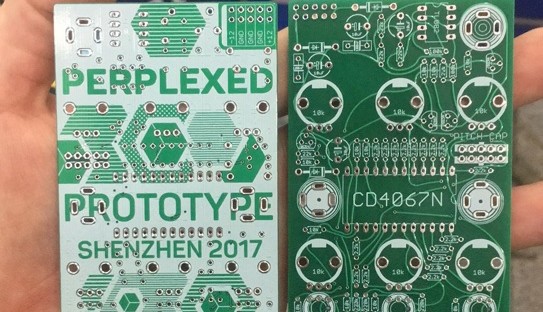Where the Boards Come from (and the Hands That Hold Them)
on

Printed circuit boards are the basis of modern electronics. They come from all over and from various circumstances. Visiting a board factory will give you a peek behind the curtain.
The total PCB market is estimated to be worth $79 billion by 2024. The big players are companies like Jabil Inc., Plexus Corp., or Benchmark Electronics. Manufacturing power houses that are too big to deal with the likes of us doing prototyping, small runs and DIY projects. You may be more familiar with PCBway and JLC (China), or Eurocircuits (EU) and OSHpark (USA). They all provide PCBs and assembly at reasonable prices for small production. They have all built a website for you to upload your designs to and proceed to the checkout. We have used all of them at some point.

Factory Workers
Generally working conditions and environmental protection are probably best in the EU. However, there can be big differences between countries. You will be better off working in a factory in Germany than in Hungary, which has more than double the minimum wage. There is certainly room for improvement.
In the United States, workers’ rights are good but not great. Factory workers are recently finding their way back to unions to collectively demand protection from being underpaid and overworked and asking to receive ‘benefits’ such as health care and paid leave. Oregon is the best and North Carolina the worst state to work in based on wages, worker protections and right to organise.
China has a demanding 9-9-6 (9 AM to 9 PM, six days a week) work culture across the country. It only allows state-run unions and has some environmental protection. There are employment laws providing things like health care, unemployment benefits and a three-month maternity leave. However, for the migratory factory worker, getting these rights can be problematic. Women represent most of the factory workforce but get paid less and don’t really advance.
Shenzhen-Style
We had a peek into a board factory with DirtyPCBs. They “started as a joke” exploring the cheapest and fastest way for Open Hardware hackers to get their prototypes done. Now they use several board houses in Shenzhen that they have all personally visited. In the Shenzhen ecology of electronics almost all factories are aimed at Shenzhen itself. When we went with them, I saw ‘uncles’ with the compulsory cigarette in the corner of their mouths handling vats of chemicals with basically household gloves. The same factory also had workers in PPE walking between the machines and many rooms (but not all) had proper ventilation. Production waste was collected in sorted bins. This was a few years ago and working circumstances in Shenzhen have improved since — minus the COVID-19 setback.
As from other factory visits, we tend to find that it is a mixed bag. Working conditions are better than you might expect but not up to what should be our standard. There is work to be done.
Editor's note: Elektor collaborates with Eurocircuits to offer the Elektor PCB Service.
About the Author
Priscilla Haring-Kuipers writes about technology from a social science perspective. She is especially interested in technology supporting the good in humanity and a firm believer in effect research. She has an MSc in Media Psychology and makes This Is Not Rocket Science happen.
WEEF 2022
The World Ethical Electronics Forum (WEEF 2022), which is slated for November 2022, will build on the momentum from last year's event, where Elektor engineers and other thought leaders discussed ethics and sustainable development goals. Over the next few months, Elektor will be publishing thought-provoking, ethics-related articles, interviews, and polls. Visit the WEEF 2022 website for additional details.



Discussion (0 comments)